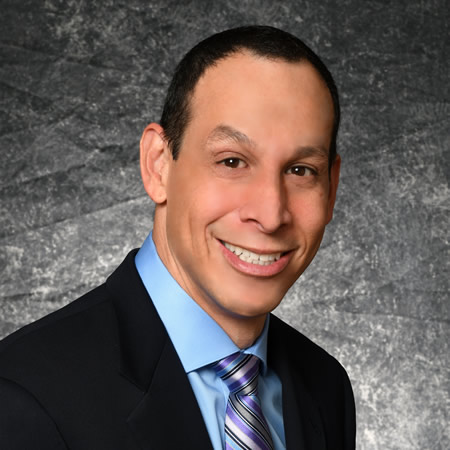Click here to view the Barristers Website.

David Rivera
The "of counsel" title once denoted a somewhat dusty relationship between a senior lawyer and a law firm. No more. Its meaning has evolved over decades. Today, the "of counsel" designation encompasses so many relationship variants that it has no single description. Examples include strategic working relationships between solo practitioners, a law firm and a part-time practitioner, and a law firm and an expert in a particular area of law.
As a more precise example, picture a close working relationship between two small firms specializing in franchise law. The first is skilled at franchise agreement drafting and negotiation. The second is reputed for its franchise law trial attorneys. The two firms complement one another, covering an area of expertise absent in the other.
This article broadly reviews the hallmarks that identify an "of counsel" relationship and some of the ethical implications that arise from it.
Traditionally, law firms marshalled their own ranks of attorneys—ranging from associates to partners—in service to their clients. The "of counsel" designation signifies a relationship distinct from those that ordinary job titles evoke. The conventional description of an "of counsel" attorney generally identified a retired partner who remained available to a firm in a consulting role. The evovling description encompasses many possibilities, such as a part-time affiliate, a senior attorney with no expectation of promotion to partner, or even a solo practitioner engaged by a firm to satisfy staffing shortfalls or provide special knowledge.
The California Rules of Professional Conduct identify some hallmarks of an "of counsel" lawyer: such a lawyer maintains a "close, personal, continuous, and regular" relationship with a law firm, though not as an associate, partner, officer, or shareholder. The Supreme Court of California has agreed with the State Bar, adding that "the essence of the relationship between a firm and an attorney of counsel to the firm 'is the closeness of the counsel' they share on client matters."
The State Bar has elaborated on the "of counsel" designation, stating that it is acceptable to maintain an "of counsel" relationship and maintain a separate source of work, "so long as conflicts and other ethical implications do not arise." Guidance on the matter sets no limits on the number of "of counsel" relationships. Rather, it's based on the qualitative criteria of Rule 1.0.1, comment [2]. As an illustration, franchise law firm 'X' may theoretically serve as "of counsel" to law firms 'Y' and 'Z.'
A. Conflict Analysis and Disqualification
The principal ethical issue regarding "of counsel" relationships is whether an "of counsel" attorney is considered to be affiliated with a firm so that the disqualification of one is imputed to the other. The short answer is, "yes, disqualification imputes."
California has adopted a single, de facto firm analysis for purposes of avoiding conflicts of interests. As a result, all current and former clients of the principal firm and the "of counsel" attorney become relevant in determining ethical obligations and disqualifications. "[I]f the 'of counsel' is precluded from a representation by reason of rule [1.7] of the California Rules of Professional Conduct, the principal is presumptively precluded as well, and vice-versa."
Imputed disqualification is based on policy reasons underlying the duties of loyalty and confidentiality. Attorneys have a duty of loyalty to preserve public confidence in the legal profession and the judicial process. Attorneys obey confidentiality obligations to promote trust in client-attorney communications, which are fundamental to our legal system. The close, personal, continuous, and regular nature of "of counsel" relationships involves several of the same elements that support the established rule of vicarious disqualification for law firm associates, partners, officers, and shareholders.
B. Fee Agreements and Fee Splitting
If an "of counsel" attorney seeks to divide fees with a principal law firm (e.g., he or she will earn a percentage of a client's fees paid to the firm), Rule 1.5 requires that the lawyers enter into a written agreement to divide the fee, that the agreement be fully disclosed in writing to the client, and that the client consent in writing to the division of fees. Not only does a client have a right to know the basis for fee calculations, he or she is also entitled to know the basis for, and the extent of, fee splitting. Disclosure helps clients monitor and manage legal fees. It also discourages fee-creep that might otherwise be prevented by preestablished fee provisions.
The "of counsel" relationship is an evolving one that finds application in a number of contexts. One common context exists in a cooperative relationship between transactional attorneys and trial attorneys. While these relationships can be beneficial to both sides of the relationship, it is important to know the identifying hallmarks. Attorneys in an "of counsel" relationship must be aware of the ethical implications that arise from it, namely imputed disqualification and the requirement for written fee agreements, client disclosure, and client consent.
Unrelated fun fact: International "Be Kind to Lawyers Day" is a globally celebrated holiday (of sorts) that occurs on the second Tuesday of April. This year, the holiday falls on April 9. Be kind to yourself (and other attorneys)!
If you have any suggestions as to possible events or activities, or comments on Barristers affairs, please email us at barristers@riversidecountybar.com.
Contact me directly by email at drivera@alumni.nd.edu, or by text or phone call at (909) 844-7397. If you are just discovering Barristers and would like to attend one of our events, I am more than happy to meet you at the door and introduce you to our wonderful group. Truly. I look forward to hearing from you!
David P. Rivera is a solo practitioner of business law in Highland. He is the President of the Riverside County Barristers Association, the Treasurer of the Hispanic Bar Association of the Inland Empire, the Treasurer of the Asian Pacific American Lawyers of the Inland Empire, and a member of the RCBA Bar Publications Committee.